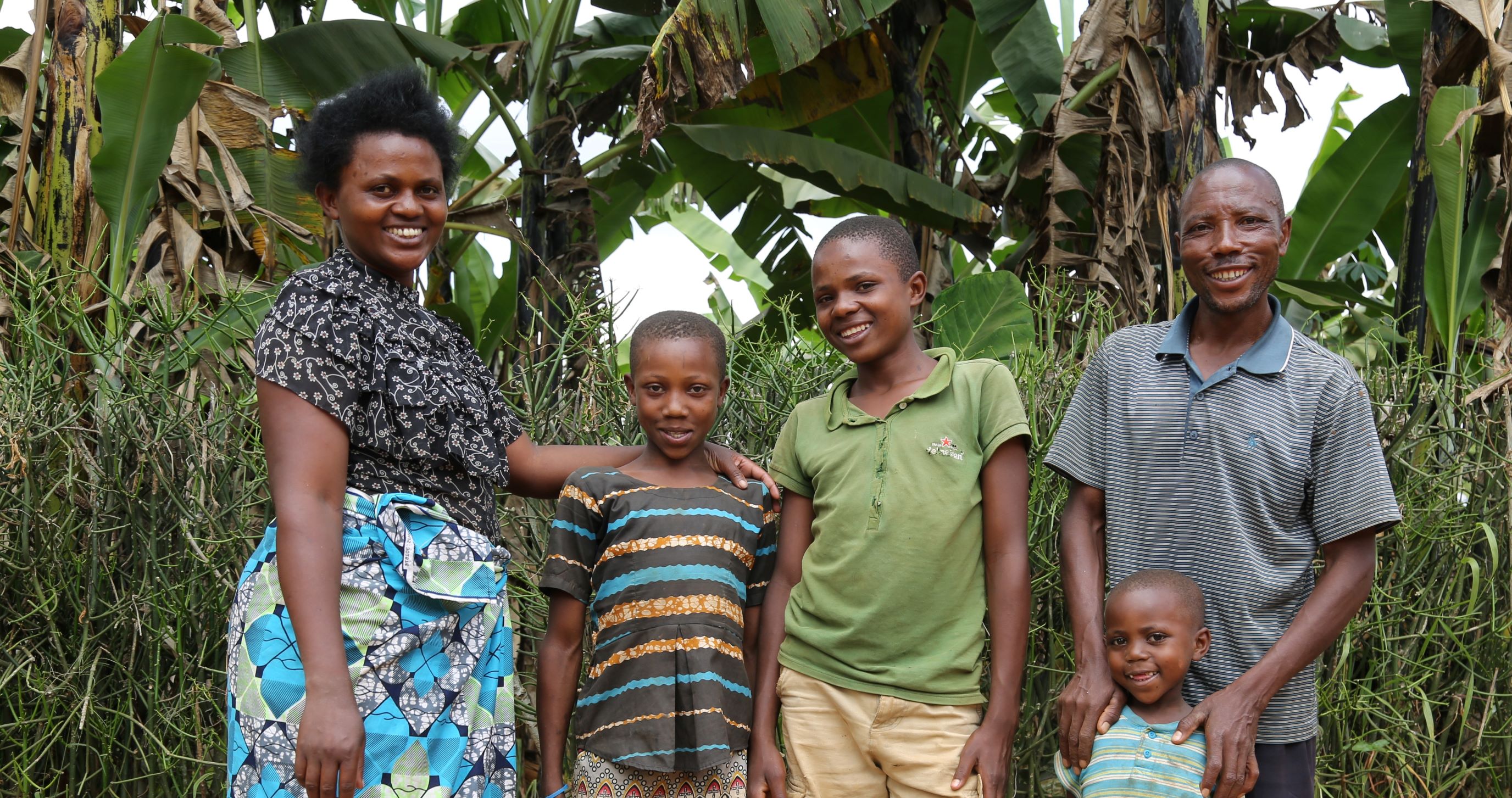Improving food security & livelihoods for smallholder farmers
Forty-four-year-old Diogene Habimana, is a father of three children and lives in Bugesera District. When you enter his compound, you are drawn to a variety of crops that are laid outside to dry. These range from beans, corn, bananas among others that he grows on his farms. He is a model farmer who has adopted land restoration practices in his farming methods, which have transformed his life completely. Diogene is a significant figure in his community because of his achievements.
“At the introduction of these practices, we didn’t accept them because we thought mixing trees and crops would lead to no harvest,” Diogene says.
World Vision's Forest Landscape Restoration (FLR) for Improved Livelihoods programme in Rwanda, provided guidance and training to farmers, inclusive Diogene, and thus he tried it out. He started with two pieces of land for demonstration; one with maize and calliandra trees and another with only tree maize to see if these trees were actually going to be helpful. The results where amazing, as he says! He then started planting trees at the borders of his garden, which he previously used for manure and erosion control.
Diogene grows a variety of trees but he is proud of the tree tomatoes, which he says have not only earned him income but also boosted his family’s health: “We sell the tree tomatoes and also eat them. My children and wife are healthy because they eat fruits. I also sometimes share with my neighbours. Through this, I have been able to buy a plot of land in an urban place where I plan to build a house,” says Diogene.
He adds, “I have also bought livestock like cows that provide milk to the family. Currently I also have some savings in my account. I have given back to my community through providing guidance to other farmers. Some of them take learning visits to my farm to learn more from me. I have also provided employment to other people; on average, I employ three people per week during the cultivating and harvest periods. This has helped them especially during the COVID-19 lockdown since they are able to feed their families during this period.”

Clement (15), Diogene’s son appreciates his father’s hard work saying that he and his siblings are able to go to school and get all they need: “Our school fees is paid on time and father buys us scholastic materials that we need. He even bought me a bicycle, which I use to fetch water. This has made life easier since I no longer have to carry a jerrycan of water on my head. My father has also renovated our house and this makes us live comfortably. We can now afford family medical insurance,” he notes.
Before Diogene started land restoration practices, he was doing traditional farming like the rest of the farmers in his community. He notes that his production was very poor and that he would barely get enough food for his family because he used a lot of the money to buy manure for his farm. The production was not proportional to the money invested. He struggled to pay medical insurance for his family, as well as other needs.
FLR for improved Livelihoods in Rwanda provides an opportunity to support the Rwanda Government’s plan in achieving the Sustainable Development Goals (SDGs). Land restoration practices in Rwanda are key to sustainable agriculture that increases productivity without compromising environmental integrity; and ensuring food security and prosperity for all.